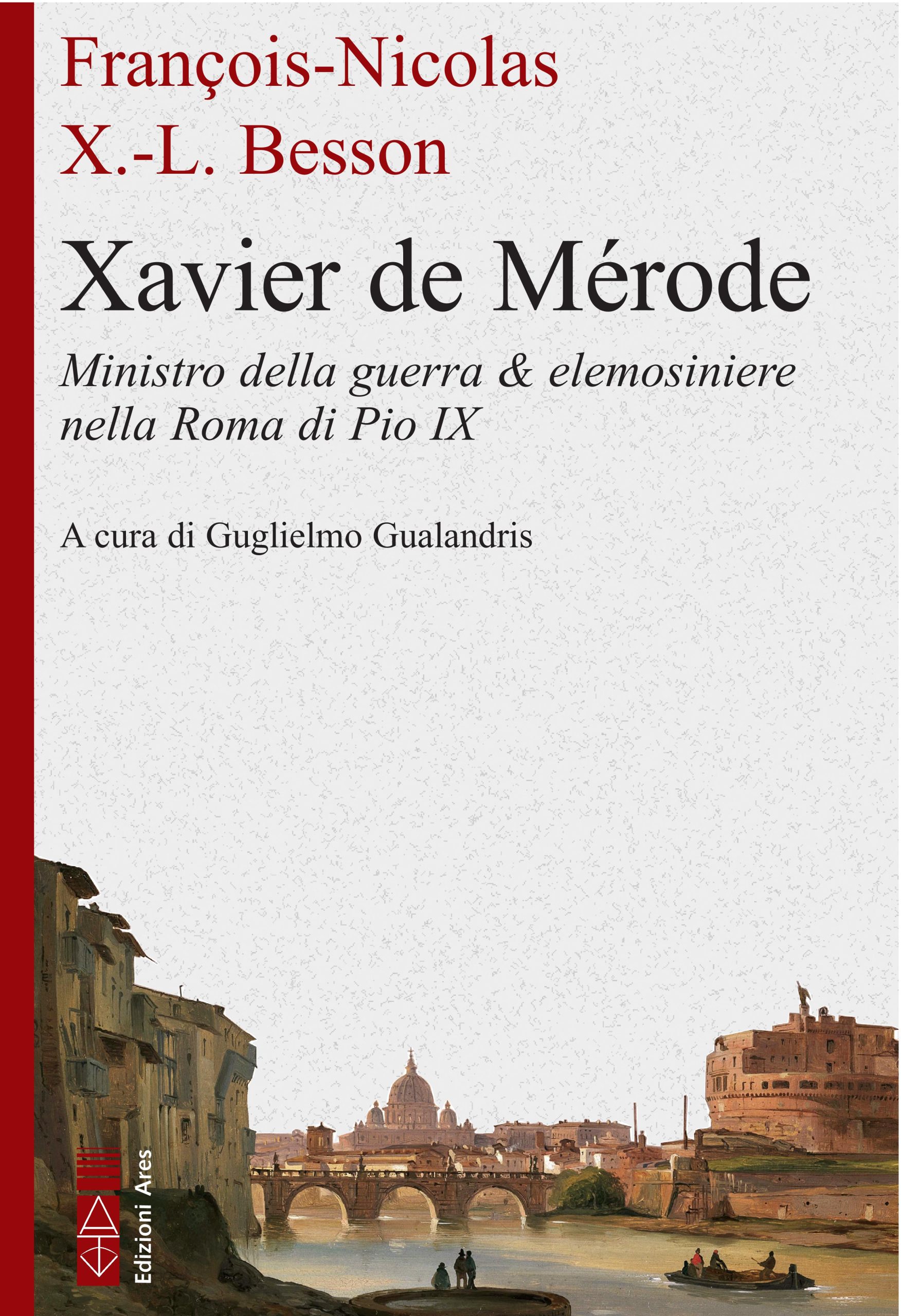
Xavier de Mérode
Ministro della guerra ed elemosiniere nella Roma di Pio IX
a cura di Guglielmo Gualandris
€25,00
Spese di spedizione per l’Italia: 5,60 €
SPEDIZIONE GRATUITA PER ORDINI SOPRA I 30,00 €
Vedi dettagli e opzioni di spedizione
Disponibile
Xavier de Mérode è stato definito dai suoi detrattori scaltro, approfittatore, fazioso fino alla violenza. Un carattere ruvido, irruento, sempre pronto alla risposta. Di nobile famiglia belga, ha vissuto il suo ministero nella Roma di Pio IX attraversando tutta la parabola dalla Repubblica romana (1849) alla Legge delle guarentigie (1871). Un periodo non facile, che lo ha trovato strenuo difensore del potere temporale della Chiesa. Durante il suo servizio come elemosiniere, è riuscito a salvare dalla distruzione molte catacombe e cimiteri cristiani dall’invadenza dei piani regolatori del nascente Regno d’Italia. Accusato di essere un “palazzinaro” senza scrupoli, in realtà ha posto con sapienza le basi per gran parte dell’urbanizzazione di Roma e del comprensorio pontino, realizzando opere tutt’ora visibili. Questo libro riporta in luce un personaggio dimenticato, legato al Papa e alla Chiesa, a Roma e alla sua gente, cui si dedicò interamente con intelligenza e cuore, distinguendosi fra i grandi protagonisti del suo tempo.
François-Nicolas-Xavier-Louis Besson
Il Sole 24Ore: XAVIER DE MERODE. A DIFESA DEL POTERE TEMPORALE DELLA CHIESA
Scarica PDFLinea Tempo: Un cristiano da non dimenticare
Scarica PDFXavier de Mérode has been described by his detractors as cunning, profiteering, sectarian to the point of violence. A rough, impetuous character, always ready to respond. From a noble Belgian family, he lived his ministry in the Rome of Pius IX going through the whole parabola from the Roman Republic (1849) to the Law of Guarantees (1871). It was not an easy period, which found him a staunch defender of the Church’s temporal power. During his service as an alms-giver, he managed to save many Christian catacombs and cemeteries from destruction by the encroaching regulatory plans of the nascent Kingdom of Italy. Accused of being an unscrupulous ‘palazzinaro’, in reality he skilfully laid the foundations for much of the urbanisation of Rome and the Pontine area, carrying out works that are still visible today. This book brings to light a forgotten character, linked to the Pope and the Church, to Rome and its people, to which he devoted himself entirely with intelligence and heart, distinguishing himself among the great protagonists of his time.